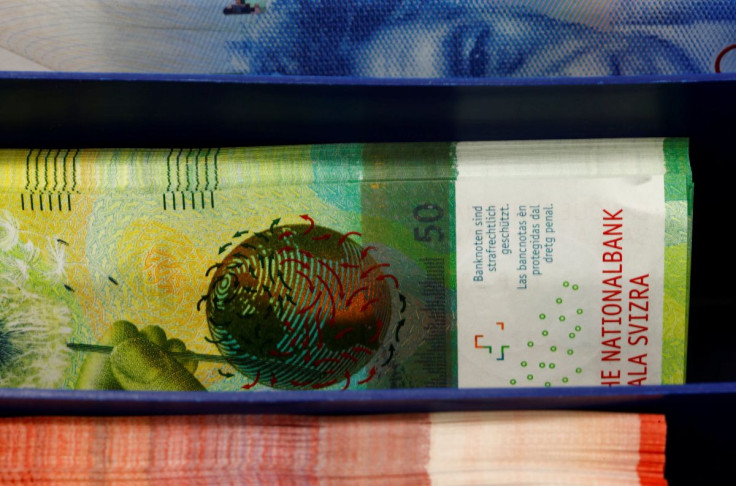Sterling Drops, Swiss Franc Jumps After BoE And SNB Rate Hikes

The Swiss franc soared on Thursday after the Swiss National Bank (SNB) delivered a surprise interest rate hike, triggering its biggest daily jump against the euro since the central bank ditched its currency peg in 2015.
In a volatile day for the British currency, sterling dropped after the Bank of England (BoE) raised interest rates by 25 basis points (bps), confounding forecasts by some market participants of a bigger hike to fight soaring inflation.
The SNB joined other central banks in tightening monetary policy in its first rate hike in 15 years, increasing its policy rate to -0.25% from the -0.75% it has deployed since 2015.
The Swiss franc surged to a two-month high against the euro and was set for its best day against the single currency since January 2015. It was 1.8% higher against the euro at 1.0200 as of 1118 GMT.
Against the U.S. dollar, the franc rose 1.4% to 0.9807, on track for its best single day versus the greenback in almost one month.
"The SNB move comes as a big shock," said Jane Foley, head of FX strategy, at Rabobank in London.
"Talk had been building that the SNB could start to move away from their deeply negative position on rates under the cover of the more hawkish ECB, but today's 50 bps move is still a big surprise."
Most analysts had expected the SNB to hold rates on Thursday and flag a hike for September, although a couple of banks had predicted a 25 bps move.
In the meantime, sterling slid 0.8% to $1.2085, not far from a two-year low touched this week, after the BoE raised borrowing costs for the fifth time since December in a bid to fight inflation despite worries about a sharp slowdown in the British economy.
"Market's expectations having leaned a bit more towards a 50bp move after the 75bp rate hike by the Fed yesterday and the 50bp hike by the SNB this morning," said Francesco Pesole, FX strategist at ING.
"However, the forward-looking message is broadly hawkish, which doesn't challenge the hawkish pricing on BoE tightening by year-end (six more hikes), ultimately limiting GBP downside for now".
The BoE said it was ready to act "forcefully" in response to "indications of more persistent inflationary pressures."
HIKE PATH
The BoE and SNB moves followed a 75 bps rate hike by the U.S. Federal Reserve on Wednesday, while the European Central Bank signalled last week it would raise its rates in July.
The SNB and Bank of Japan, which meets on Friday, were the only two major developed world central banks yet to flag higher rates in a tightening cycle that started late last year.
Traders were also closely watching several ECB speakers after the central bank promised to control borrowing costs for the euro zone's periphery countries after an emergency meeting on Wednesday.
Versus the dollar, the euro fell 0.4% to $1.0402, not far from a one-month low touched on Wednesday.
Amid worsening market risk sentiment, the safe-haven U.S. dollar rose against a basket of peers, nearing a 20-year high touched before the Fed upped borrowing costs on Wednesday by the most since 1994.
The dollar index rose 0.3% to 105.09.
© Copyright Thomson Reuters 2024. All rights reserved.







